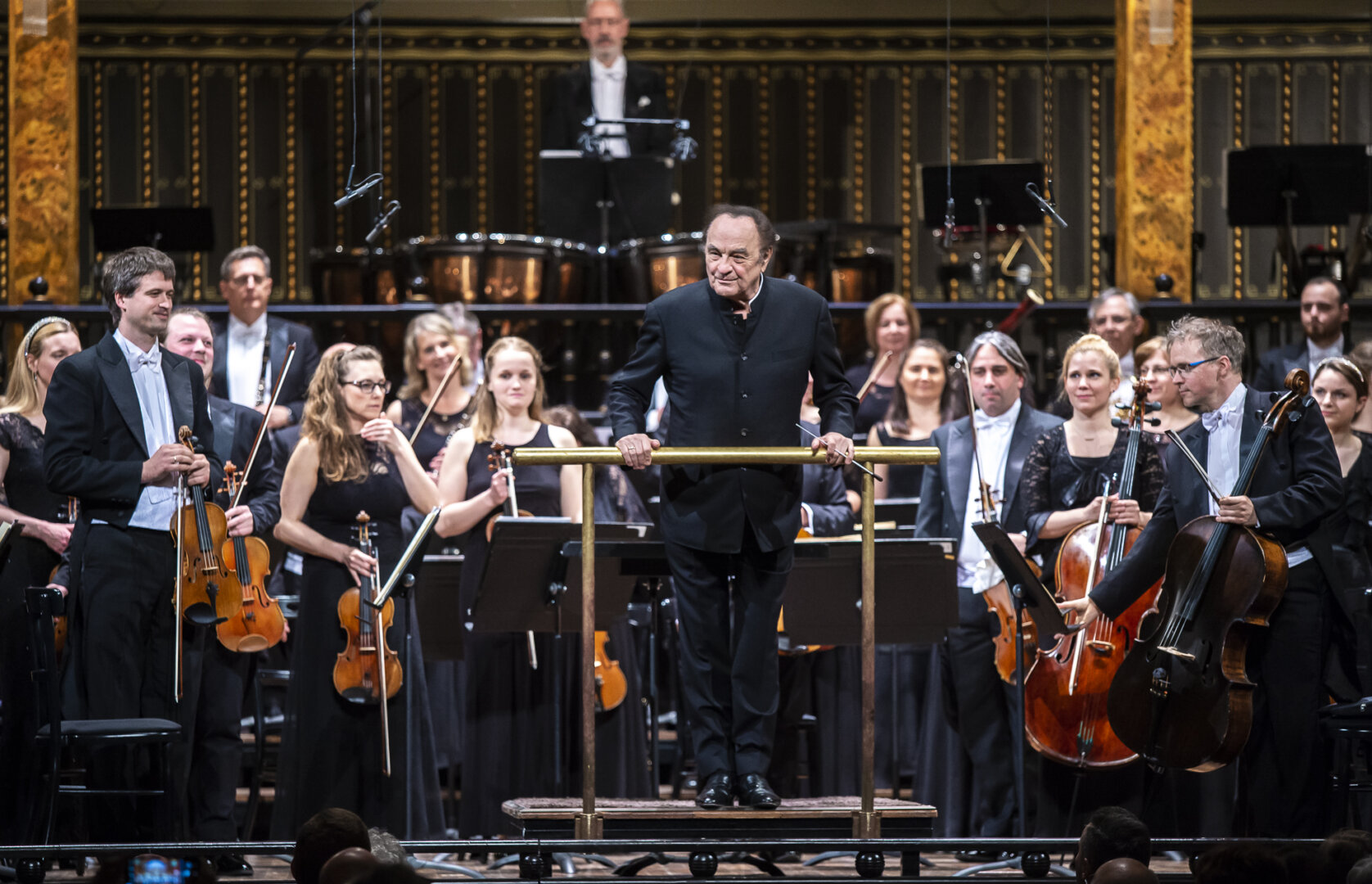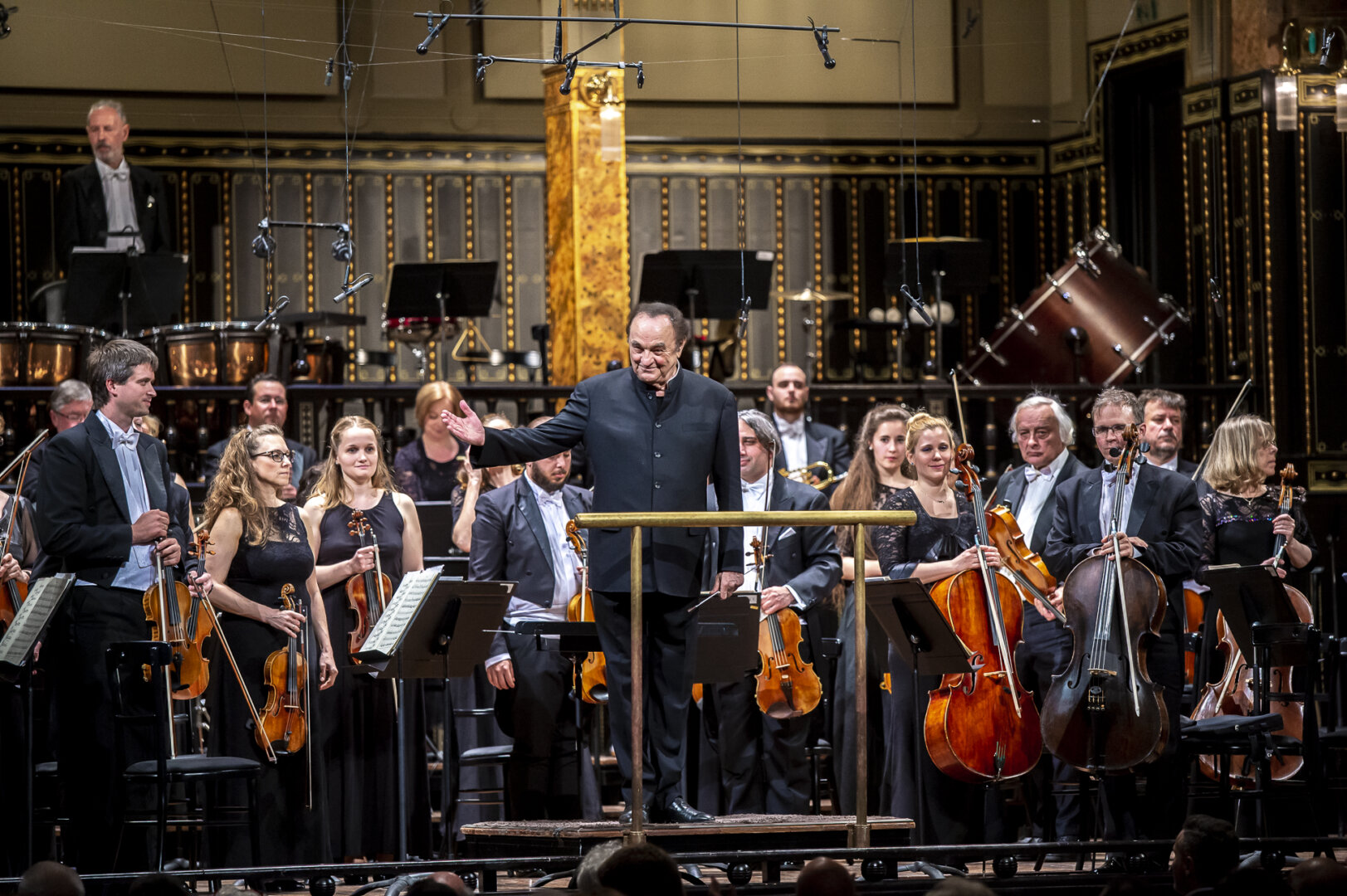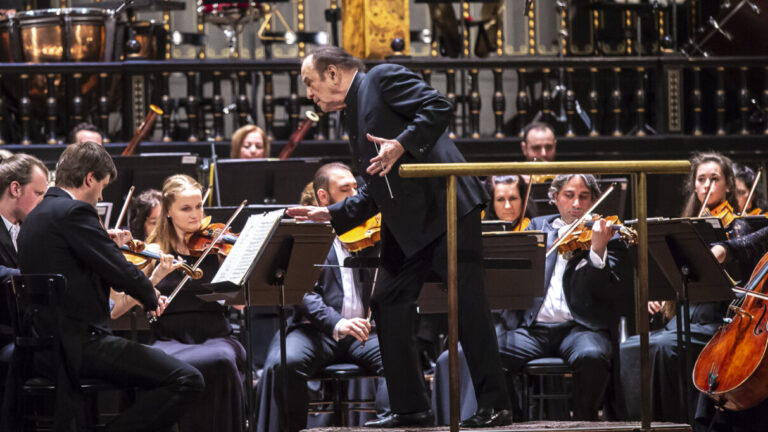Swiss conductor Charles Dutoit reappeared in Budapest to conduct the MÁV Symphony Orchestra on 5 May at the Liszt Academy. At 85, Dutoit is still very much in his prime; he dwells in that elite category of those who qualify for professional lionization.
From the back, he looks like Atlas – a bronzed and buffed behemoth who can take on the world. From the front, though, we see the reality in his face: one who has been through hell and back, but one whose sheer iron will has resurrected itself. Internationally shunned from any podium since his alleged transgressions emerged during the 2017 #metoo movement in the U.S., Dutoit has been off the radar, only to emerge stealthily in pockets of Europe where the collective memory was cloudy enough to allow him to step back on the podium.
According to the rock-star reception he enjoyed at the Liszt Academy on this night, it was clear that, for an audience hungry for musical depth and power in the symphonic realm, Dutoit was their man. His prowess on the podium is a cosmic experience: the magical results he pulls out of the MÁV, from this and only occasional engagements with them in the recent past, proves his capacity to endow his massive skill and caretaking to any orchestra.

The program, which included Mendelssohn’s “Hebrides” Overture, Mozart’s Symphony No. 39, Ravel’s “Valses nobles et sentimentales,” and Stravinsky’s “Firebird,” was conducted from memory. These pieces are engraved in this man’s brain and hands, all the orchestra had to do was to allow themselves to be molded in those hands.

Like a pantomimist, his body language mimics the musical gestures, even doing balletic relevés, sometimes vocalizing, but always animating every phrase. One of the most enlightened results is an extremely energized elegance within thick thematic developments, rescuing them from repetitious ennui. An even greater demonstration of his finesse was the way he injected a besotted, furs-and-pearls approach to the Ravel: as if silk and satin sheets were billowing through the many dovetailing cascades of orchestrational tornadoes. The ending was sublime. More thrills came in “Firebird” via his tight command of every dramatic turn of events from the spooky, ominous beginning to the apocalyptic finale. Many fine solos from all the woodwinds, especially the first bassoon, and the percussion team were skillfully delivered.
The Lion shows no signs of slowing down. His next engagement in Budapest, conducting the MÁV Symphony Orchestra in Liszt and Berlioz, is May 4, 2023.











